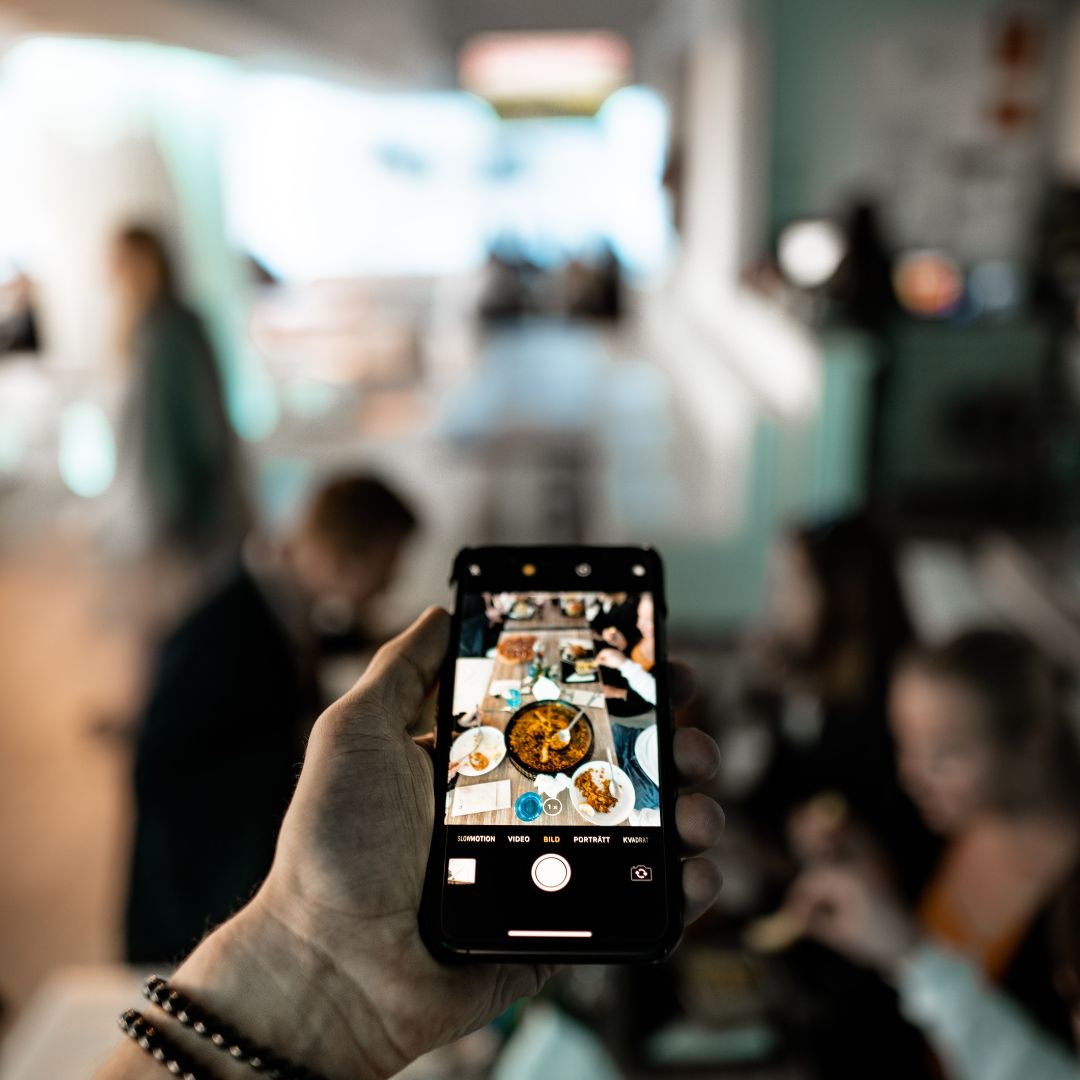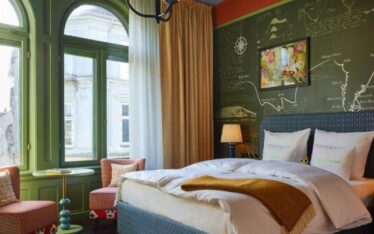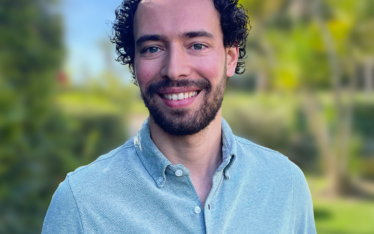As the role of the hotel changes and hybrid models continue to grow in popularity, the way we market these spaces is shifting. While our clients’ core marketing goals – to grow revenue, bookings and occupancy – remain the same, marketing a hybrid hotel requires a different strategic approach to that of marketing a traditional hotel.
That’s because the role of the hybrid changes depending on the individual’s needs. Not only are you appealing to several guest segments with their own motivations and interests, but their purpose for visiting the space can be vastly different.
Your marketing messaging needs to resonate with the diverse range of people you want to reach – from the international traveller visiting for the week to the local remote worker who needs a space to work for the day.
Ensuring you get the balance right when marketing the services and experiences that make up your concept can be a real challenge – even more so when you operate multiple locations, as many of our clients do.
So, how do we do it? Read on for some of our best practice tips…
Use data and research to really ‘get’ your guests
A successful marketing strategy is built upon a deep understanding of your guest’s needs, motivations and behaviours. While demographics like age, gender and location provide a useful starting point, your research and data analysis must go deeper.
You have to be able to step into the mindset of your guests to ensure your marketing will resonate with them – the ultimate goal is for your target audience to feel as though you are speaking directly to them. To achieve this, we build out guest personas as the first step in our clients’ marketing strategies.
In these personas, we cover everything from hobbies and habits to online behaviour and – crucially – how guests want to feel in the space. We glean this information from existing audience data and detailed market research to make it as accurate as possible and we then update regularly as we learn more about the audience through online interaction.
We create different personas for each target guest segment – that’s because the needs of a leisure traveller will naturally differ from that of a digital nomad who may also be seeking a different experience to a local remote worker, for example.
Having the different guest personas front of mind when it comes to marketing is crucial for communicating your message in the best way and for hitting your objectives.
Make your marketing as personal as possible
Of course, crafting messaging that appeals to these different segments while staying true to your brand’s core message can prove challenging.
Our tried and tested approach is to segment our clients’ target audience based on lifestyle or length of stay and then implement unique marketing strategies for each segment with different types of messaging, deliverables and tactics. We’re talking separate ads funnels, targeted landing pages, engaging with different types of influencers and personalising email marketing.
While the messaging in these mediums differ, the brand values and tone of voice remain the same, acting as a thread that connects the different segments. This taps into the common values that present themselves across segments – community, connection, belonging and safety are some that we see the most.
Providing personalised communications in this way is a powerful tool to develop customer loyalty with 86% of consumers stating they are more likely to purchase from a brand that provides personalised experiences online. Our results show that a hyper-personalised strategy and output will lead to higher conversion rates and ultimately drive bookings and revenue.
Create and share original content
Over the past 12 months, we have seen short-form video take over social media thanks to the meteoric rise of TikTok and the popularity of features like Instagram Reels. It’s no exaggeration to say that this shift has changed the face of social media platforms and we have seen brands struggle to adapt to this new landscape.
While it can be tempting to shift focus to other marketing channels, the content you share on social media is the cornerstone of building your brand. An active social media presence is also vital for reaching potential guests in the early stages of their booking journey as people shift towards searching for brands on social before Google.
However, creating original content on the scale required to stay relevant on social media today is a challenge – both practically and financially – for all hospitality brands and hybrids are no different.
Our solution to this is to work closely with our clients’ teams on the ground across sites to capture suitable content. We provide creative guidelines and communicate regular briefs in the form of prompts, ideas or visual examples communicated with the teams through group chats on WhatsApp or Slack. When we receive the content, our team then edit it into suitable formats and schedule it into the client’s social media content calendar.
As well as collaborating with teams in this way, we also source and edit user-generated content, brief photographers and videographers to create social-first content, and weave original content as a deliverable into our contracts when working with influencers.
Get the balance right to drive bookings
Executing an effective marketing strategy comes down to utilising the right channels for the right purpose at the right time – just like a hybrid hospitality site uses different spaces for different functions that best suit its guests’ needs.
When you get this balance right and all your channels are working in tandem, you essentially create a well-oiled marketing machine that drives bookings.
But what does this look like in practice?
Strategically, we see success by limiting sales and promotions on social channels and instead utilising online advertising – including Google Ads and paid social ads – and email marketing to drive bookings. Adopting this approach for our clients has led to an average overall ROI of 12:1+ – that is, for every £1 a client spends working with us (including their ad spend), they receive on average £12+ back in increased revenue. When looking at ads alone, we have achieved ROAS (return on ad spend) as high as 24:1.
With sales covered by other channels, your social media output should focus on providing valuable, entertaining and inspiring content for your audience. The key purpose of these platforms is to build an engaged brand community – the more engaged your online audience are with your brand, the more likely they are to spend their money in your spaces (and return time and time again).
While this approach is a longer-term social media strategy, the business benefits are worth staying the course – engaged brand communities lead to increased revenue and resilience for hospitality brands, as we saw during the pandemic.
Cement your success with data analysis
While creativity and understanding lie at the heart of effective marketing, data is always in the driver’s seat leading you to success.
A data-driven approach is key to understanding how your customers are interacting with both your physical and digital spaces. Data provides insights into where you need to focus your attention and enables you to understand the return on investment (ROI).
Analysing the user flow of your website via Google Analytics is particularly useful for hybrid hospitality brands as it helps you gain insight into demand levels for each segment by showing where users are landing on your website and the paths they take from the source through to where they exit the site.
Examining these traffic patterns through your site then informs your marketing strategy – for example, if there is significantly lower traffic to one segment’s webpage, it could illustrate that this element of your business needs to be communicated about and promoted more online.
Always keep an eye on the future
We all know the world of marketing moves fast – so, what’s coming next?
While Instagram remains the dominant social platform at the moment, the power and influence of TikTok is growing exponentially. And it’s reach goes beyond your social strategy and into your search strategy – research shared by Google shows that nearly 50% of Gen-Z use TikTok or Instagram instead of Google Search tools. Having a strong presence and an engaged community on these platforms will become even more vital to hybrid hospitality brands over the next 12 months.
Looking even further forward, the traditional model of hospitality is set to be disrupted with growing investment in real estate in the metaverse – future-facing hybrid brands such as CitizenM and Leven are already making big moves in this space. These virtual spaces will make the brand experience borderless, bringing hotel brands to new audiences and providing accessible spaces where people can connect with each other and engage in immersive experiences.
Our prediction? Hybrid hospitality brands of the future will surpass the physical spaces they inhabit to play a role in their customers’ everyday lives through hyper-relevant content, engaged brand communities and virtual experiences.



